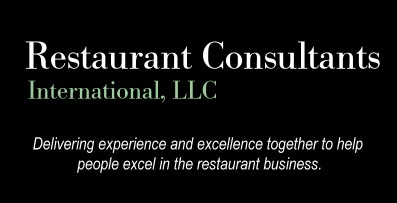If all of the above is sounding strangely familiar, chances are you’re not alone. For all of the above reasons the food and beverage industry appears to be taking a disproportionate hit from today’s economic meltdown. Unless, of course, you happen to be operating a McDonalds or a mom & pop burrito stand (in which case you might actually be benefitting from the current malaise).
Yes, things are bad, and if current projections mean anything, they might get even worse as the year 2009 closes. And you’re no CitiBank so no one’s likely to bail you out either. But, for every crisis— even one of historic proportions such as we’re facing now— experience shows that there are a wide range of corresponding opportunities available for those with vision and tenacity. The Good News is that Vision and Tenacity are character traits with which the vast majority of food and beverage operators seem to be hard-wired.
Except for shopping around there isn’t much tavern or restaurant owners can do about the wholesale cost of soup and nuts. And, sadly, offering those Two-For-One discount coupons won’t restore a high level of customer confidence or patronage either. But there is one aspect of a proprietor’s bottom line which can subjected to what lawyer’s call mitigation. That’s the amount of rent you’re paying under that commercial lease of yours.
More than ninety percent of tavern/restaurant owners rent their premises under the terms of commercial leases they’ve executed within the past ten years. The vast majority of operators we’ve spoken with failed to engage the services of any real estate agent or attorney to assist in the original negotiation of their leases. Often, they didn’t even pay any particular attention to the "paperwork" before signing on the dotted line— at the landlord’s prescribed price and terms. Often, the prospective lessee made no attempt to even read his or her lease. And, in many instances, the lessee’s lack of English-language skills would have precluded any serious personal effort to review the various terms and covenants. That’s typical of the Way It’s Done in California as elsewhere.
But what was reasonable at the time the operator’s lease was signed may not be reasonable anymore, especially in light of recent economic developments. You may well have cause to worry about the price of soup and nuts (and workers comp, Budweiser and a myriad of other items). But guess what? Chances are your landlord is more worried about losing a tenant than you are about filling up those tables on Saturday night. So, if all this is true, how should one proceed?
Best advice would be to FIRST engage the services of a leasing agent or attorney you have reason to trust. Someone well versed in the quirky legal niche of commercial leasing. Or a legal firm dedicated to the concept of rent mitigation— such as ours, Commercial Lease Advocates. At Advocates, re-negotiation of our clients’ leases is all we do.
Rent re-negotiations can be a bit thorny, especially midway through the term of an existing lease. Landlords— whether they be single-party investors, partnerships, absentee holding companies, or vast real estate investment trusts— demand, and expect to receive, a certain level of deference in their dealings with their lessees (who many landlords have a tendency to regard as greasy-spoon- wielding sharecroppers). However, landlords do read the financial pages and fear vacancies as much as farmers do pestilence and drought. Lessors who have recently had the Vacancy Experience somehow seem easier for us to deal with.
In the real world of commercial-leasing there are vacancies. And then there are restaurant-vacancies. The former can theoretically be filled by replacement tenants of any description. For example, that onetime hair salon can be filled with a greeting-card shop, or some other retail use. But because of its extensive fixturization, configuration, and (in most instances) the presence of a conditional- use permit a tavern or restaurant premises cannot be so easily re-let. That’s because there just aren’t many takers for "failed" restaurant locations these days.
The question we’re often asked is whether our client, already bound by the terms of his or her lease, is somehow entitled to re-negotiate any of its terms, most especially those regarding rent? The answer is clearly No. In our system, a deal’s a deal. But what if circumstances beyond the control of either the landlord or the tenant have intervened to make the latter’s use of the premises no longer profitable— or even financially viable? Well, although A deal’s still a deal. . . it would be an exercise in sheer blockheadedness for any landlord to refuse to re-negotiate the economic terms of his or her tenant’s lease if the alternative might foreseeably result in the latter’s closure and the inevitable vacancy.
Skeptical? Of course. As well you should be. After all, when confronted with a lessee request/demand for rent mitigation the landlord’s initial reaction will almost certainly be. . . Hell, No! Why should I re-negotiate— We already have a lease!!! At this point, the would-be re-negotiator need deploy a high level of professionalism and finesse whilst never, ever, resorting to threats or intimations of any kind. Any rent-relief proposal to the lessor should be styled as a mutually-beneficial opportunity for the landlord to retain a tenant who otherwise might find it more feasible to become a former tenant.
At Commercial Lease Advocates we call this our Tenant Retention Program, a process which involves an assessment and communication of our clients’ financial realities and a good-faith attempt to reconcile these with the reasonable expectations of the lessor. Nowadays, in the current financial climate, Reasonable for the tenant is can be defined as the opportunity to stay in business at the very least on a break-even, or marginally-profitable, basis; Reasonable for the landlord should address those concerns he, she or it might otherwise have regarding a potential vacancy. The result of this process will almost inevitably provide something of value to each of the parties— a reduced rental burden for proprietor. And, for the lessor, a diminution of anxiety over the premises’ future "rent stream".
We at Commercial Lease Advocates have generally found that Reasonable falls within a range of a twenty to forty percent (20%/40%) rent reduction for periods of between two and six years. Even a negotiated roll-back to 2000 levels deploying a "reverse cost of living" methodology will often provide acceptable results, sufficient in many instances to enable the proprietor to continue to operate— often at significant profit. There are, of course, plenty of variables which include prevailing vacancy rates in the vicinity, structural or functional obsolescence of the relevant premises, and the ultimate question: Would a specific amount of rent relief save a business which might otherwise fold, taking everyone in sight down the proverbial tubes? Attorneys who seek to re-negotiate commercial leases don’t traffic in "bail-outs". But we can, and often do, save businesses and jobs.
There is no Superman and there are no magic bullets, however, and any knowledgeable real estate agent or attorney can achieve the same results we can, given a certain level of sophistication and tenacity. The effort to achieve rent-reduction is certainly worth a try. In virtually every instance.






